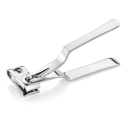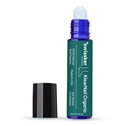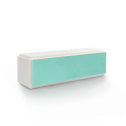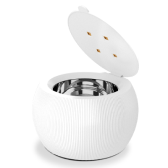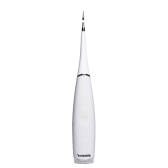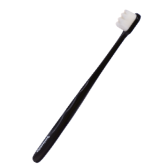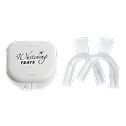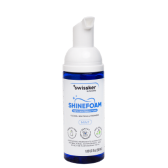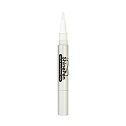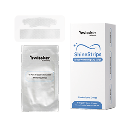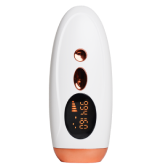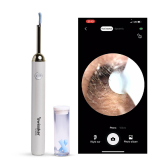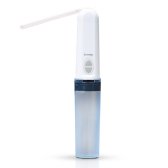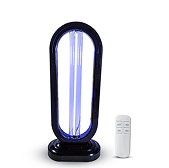Toenail fungus, also known as onychomycosis, is a common fungal infection that affects the toenails and surrounding skin.
If left untreated, toenail fungus can cause discomfort, pain, and embarrassment. It can also spread to other toenails or even fingernails, making it difficult to manage and cure.
Fortunately, there are several toenail fungus cure options available, ranging from topical and systemic medications to laser therapy and surgical removal.
By seeking medical attention and following a treatment plan, toenail fungus can be managed effectively and cured for good.
In the following sections, we’ll explore the different types of toenail fungus cures in more detail, as well as how to prevent recurrence of the condition.
Topical Toenail Fungus Cures
Topical toenail fungus cures are medications that are applied directly to the affected toenail and surrounding skin. These treatments work by killing the fungi responsible for the infection and preventing them from spreading.
Topical toenail fungus cures can take several months to be effective, and they are typically used for milder cases of toenail fungus.
However, our topical toenail fungus treatment that has gained popularity in recent years is Swissklip Medi-Care Anti-Fungal Stick Treatment. This product is a super effective, fast, and reliable treatment option for toenail fungus.
Swissklip Antifungal Treatment contains a powerful blend of natural and pharmaceutical-grade antifungal ingredients that work together to kill the fungi responsible for the infection and prevent it from spreading.
The treatment is easy to apply and can be used in conjunction with other topical or systemic toenail fungus cures for even greater effectiveness. If you’re looking for a topical toenail fungus cure that is both safe and effective, Swissklip Antifungal Treatment is definitely worth considering.
Other topical topical toenail fungus cures available are antifungal creams, ointments, and nail lacquers. These treatments are available over-the-counter or by prescription, depending on their strength and effectiveness.
While these other topical toenail fungus cures can be effective, they do have some limitations. They may not penetrate deeply enough into the toenail to reach the fungi responsible for the infection, and they may not be effective for more severe cases of toenail fungus (read this article that answers Why is my toenail black?).
We recommend the best topical toenail fungus treatment, but it’s important to follow your podiatrist’s instructions carefully and to continue using the medication for the recommended duration to ensure the best possible outcome.
Oral Medication for Toenail Fungus
Oral medication for toenail fungus cures work by traveling through the bloodstream to reach the infected toenail.
These oral medications for toenail fungus treatments are typically used for more severe cases of toenail fungus and may require several months of treatment to be effective.
There are several types of oral medication for toenail fungus available, including terbinafine, itraconazole, and fluconazole. These medications are only available by prescription, and your podiatrist can recommend the best oral medication for toenail fungus for your specific case.
While systemic toenail fungus cures can be effective, they do have some potential side effects, such as liver damage and gastrointestinal issues.
Your podiatrist will monitor your health closely while you are taking these medications to ensure that they are safe and effective for you.
It’s important to take oral medication for toenail fungus exactly as prescribed and to continue taking the medication for the recommended duration, even if your symptoms improve. Stopping the medication early can increase your risk of recurrence of the infection.
Your podiatrist can provide guidance on how to take oral medication for toenail fungus effectively and monitor your progress to ensure that the treatment is working.
By following your podiatrist’s instructions and taking the medication as directed, you can effectively manage and cure toenail fungus.
Laser Treatment for Toenail Fungus
Laser treatment for toenail fungus is a newer option for curing toenail fungus that uses a beam of light to penetrate the toenail and destroy the fungi responsible for the infection.
This treatment is considered safe and effective, and can be completed in just a few sessions.
During laser treatment for toenail fungus, the laser is directed at the affected toenail and surrounding skin.
The laser light heats up the area, destroying the fungi responsible for the infection while leaving the healthy tissue intact.
Laser treatment for toenail fungus is typically painless and requires no downtime. Most patients are able to return to their normal activities immediately following the procedure.
While laser treatment for toenail fungus can be effective, it can also be more expensive than other treatment options, and it may not be covered by insurance.
It is also not effective for all types of toenail fungus, and your podiatrist will determine whether this treatment option is right for you.
If you are considering laser treatment for toenail fungus, it’s important to consult with a qualified provider who has experience with this treatment.
Your podiatrist can recommend a provider and provide guidance on whether laser therapy is the best cure for toenail fungus for your specific case.
Fungal Toe Nail Removal
In severe cases of toenail fungus that do not respond to other treatments, surgical removal of the affected toenail may be necessary. This procedure is typically performed under local anesthesia and involves removing either the entire toenail or just the affected portion.
While fungal toe nail removal can be effective, it can also be painful and require a lengthy recovery period.
In addition, the toenail may not grow back normally after the procedure, which can cause further discomfort and cosmetic issues.
Fungal toe nail removal is typically a last resort option, and your podiatrist will only recommend it if other treatments have been unsuccessful. Your podiatrist can provide guidance on what to expect during the procedure, as well as how to care for your toe during the recovery period.
If you are considering fungal toe nail removal, it’s important to discuss the potential risks and benefits with your podiatrist, and to carefully consider all other treatment options before making a decision.
By working with your podiatrist and following their guidance, you can effectively manage and cure toenail fungus without resorting to surgical intervention.
Preventing Recurrence of Toenail Fungus
Once you have successfully cured toenail fungus, it’s important to take steps to prevent recurrence of the infection. Toenail fungus is highly contagious and can be easily contracted in warm, moist environments, such as swimming pools, locker rooms, and communal showers.
To prevent recurrence of toenail fungus, it’s important to practice good foot hygiene, such as washing your feet daily with soap and water and drying them thoroughly. You should also wear clean socks and shoes, and avoid sharing shoes or socks with others.
In addition to good foot hygiene, using antifungal sprays or powders can help prevent the growth and spread of fungi on your feet and toenails. Your podiatrist can recommend the best products for your specific needs and provide guidance on how to use them effectively.
It’s also important to monitor your toenails regularly for signs of infection, such as discoloration, thickening, and distortion. Understanding What Causes Thick Toenails, its Symptoms and Treatments To Get Rid of Them and early detection of toenail fungus can help prevent it from spreading and becoming more difficult to manage.
Don’t Let Toenail Fungus Control Your Life
Toenail fungus can be a persistent and uncomfortable condition, but with the right treatment plan, it can be effectively managed and cured. Same case with calluses on feet, they can be treated with the Swissklip Callus Remover. There are several toenail fungus cure options available, including topical and systemic medications, laser therapy, and surgical removal.
If you suspect you have toenail fungus, it’s important to seek medical attention from a podiatrist. Your podiatrist can recommend the best treatment options for your specific case, as well as provide guidance on how to prevent recurrence of the infection.
By following your podiatrist’s guidance and taking preventive measures, such as good foot hygiene and using antifungal sprays or powders, you can effectively manage and prevent recurrence of toenail fungus.
With the right care and attention, you can keep your feet healthy and comfortable, and avoid the discomfort and embarrassment of toenail fungus.









